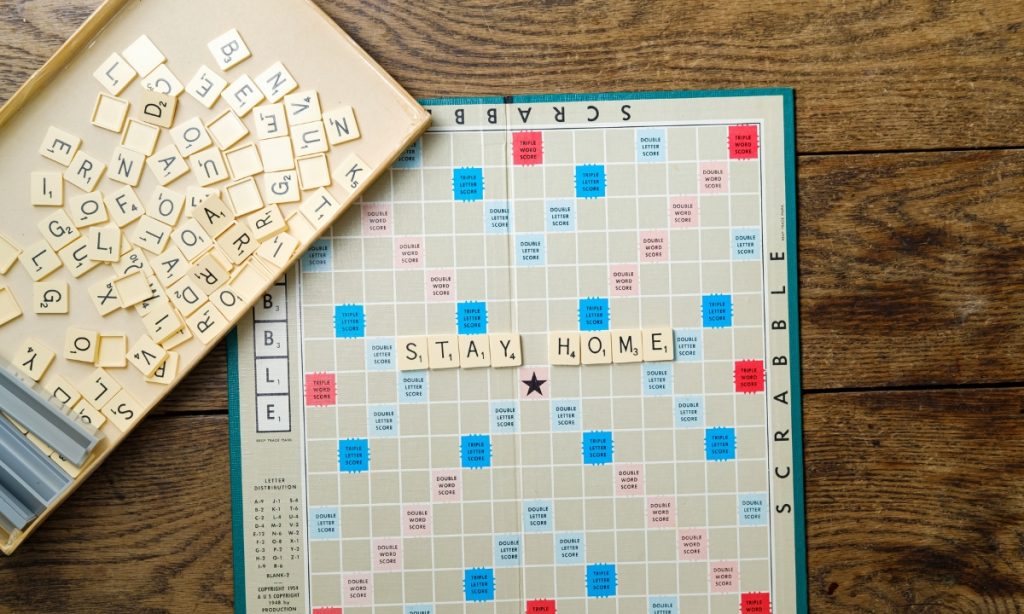Aging is a natural part of life, and with it comes various changes in our physical and mental abilities. One area that can be particularly affected is cognitive function. The brain, like any other organ, can experience wear and tear over the years, leading to issues like memory loss, decreased problem-solving skills, and slower processing speeds. However, engaging in certain activities, such as playing word games, can help maintain and even improve cognitive function as we age. Let’s explore how language and word games can play a crucial role in keeping our brains sharp.
The Aging Brain: What Changes Occur?
As we age, the brain undergoes several changes that can impact cognitive function. Some of the most common changes include:
1. Shrinking of Brain Volume
With age, the brain’s volume gradually decreases, particularly in areas like the hippocampus and prefrontal cortex, which are responsible for memory and executive functions.
2. Slower Neural Processing
The speed at which neurons communicate with each other can slow down, leading to slower cognitive processing and reaction times.
3. Decreased Neuroplasticity
Neuroplasticity refers to the brain’s ability to adapt and form new neural connections. This ability tends to decrease with age, making it harder for older adults to learn new skills or adapt to new situations.
4. Decline in Neurotransmitter Levels
Levels of neurotransmitters like dopamine and serotonin, which play critical roles in mood regulation and cognitive function, can decline with age, potentially impacting memory and concentration.
The Power of Language in Cognitive Health
Language is a fundamental aspect of human cognition, involving various brain regions and complex neural networks. Engaging in language-related activities can stimulate these networks and promote cognitive health. Here’s how:
1. Enhancing Neuroplasticity
Language activities, such as reading, writing, and engaging in conversations, can help maintain and enhance neuroplasticity, keeping the brain adaptable and capable of forming new connections.
2. Boosting Memory
Using language regularly can strengthen memory pathways in the brain. Recalling words, forming sentences, and understanding complex narratives all require the brain to actively retrieve and process information, thereby enhancing memory.
3. Improving Problem-Solving Skills
Language-based activities often involve problem-solving, whether it’s figuring out the meaning of a new word, understanding a complex sentence, or constructing a coherent narrative. These activities can keep the brain’s problem-solving abilities sharp.
4. Enhancing Social Interaction
Language is a social tool, and engaging in conversations and social activities can provide cognitive stimulation and emotional support, both of which are crucial for overall brain health.
Word Games: A Fun Way to Keep the Brain Active
Word games are an enjoyable and effective way to engage the brain in language activities. They can be played alone or with others, making them versatile tools for cognitive health. Let’s look at some popular word games and their cognitive benefits:
1. Crossword Puzzles
Crossword puzzles are a classic word game that requires players to fill in a grid with words based on given clues. They can help improve vocabulary, memory, and problem-solving skills.
2. Scrabble
Scrabble is a popular board game where players create words from individual letter tiles and place them on a grid. This game enhances vocabulary, spelling, and strategic thinking.
3. Word Search
In word search puzzles, players must find and circle words hidden in a grid of letters. This game can improve pattern recognition, attention to detail, and visual scanning abilities.
4. Anagrams
Anagrams involve rearranging letters of a given word or phrase to form new words. This game stimulates creative thinking, vocabulary, and mental flexibility.
5. Wordle
Wordle is a modern word game where players try to guess a five-letter word within six attempts. It challenges players to think critically, use deductive reasoning, and expand their vocabulary.
The Science Behind Word Games and Cognitive Health
Numerous studies have shown the positive effects of word games on cognitive health, particularly in older adults. Here are some key findings:
1. Cognitive Reserve
Engaging in mentally stimulating activities, such as word games, can build cognitive reserve, which is the brain’s ability to compensate for age-related changes and resist cognitive decline. Higher cognitive reserve is associated with a lower risk of dementia and other cognitive impairments.
2. Delayed Onset of Cognitive Decline
Research suggests that regularly participating in word games and other cognitive activities can delay the onset of cognitive decline and dementia. For example, a study published in the journal Neurology found that individuals who engaged in mentally stimulating activities had a slower rate of memory decline compared to those who did not.
3. Improved Mental Flexibility
Word games require players to think quickly and adapt to new information, which can enhance mental flexibility. This ability is crucial for problem-solving and adapting to new situations, both of which can become more challenging with age.
Incorporating Word Games into Daily Life

Incorporating word games into your daily routine can be both fun and beneficial for cognitive health. Here are some tips to get started:
1. Set Aside Time for Word Games
Dedicate a specific time each day or week for playing word games. This could be during your morning coffee, after dinner, or before bed. Consistency is key to reaping the cognitive benefits.
2. Play with Friends and Family
Playing word games with others can add a social element, making the experience more enjoyable and providing additional cognitive stimulation through conversation and interaction.
3. Explore Different Types of Word Games
Variety is important to keep the brain challenged and engaged. Try different types of word games to stimulate different cognitive functions, such as vocabulary, memory, and problem-solving.
4. Use Technology
There are many apps and online platforms that offer a wide range of word games. These can be a convenient way to play and challenge yourself, whether you’re at home or on the go.
5. Combine Word Games with Other Cognitive Activities
In addition to word games, consider incorporating other mentally stimulating activities into your routine, such as reading, writing, puzzles, and learning new skills. A diverse range of activities can provide comprehensive cognitive benefits.
The Social Benefits of Word Games
In addition to cognitive benefits, word games can also offer significant social advantages, which are equally important for overall well-being:
1. Strengthening Relationships
Playing word games with family and friends can strengthen relationships by providing a fun and engaging way to spend time together. It encourages communication, cooperation, and friendly competition.
2. Reducing Isolation
For older adults, social isolation can be a significant concern. Participating in word games, whether in person or online, can help reduce feelings of loneliness and isolation by fostering social connections.
3. Promoting Intergenerational Interaction
Word games can be enjoyed by people of all ages, making them an excellent activity for intergenerational interaction. Playing with grandchildren, for example, can provide valuable bonding time and mutual cognitive benefits.
Read More: Language and the Aging Brain: How Word Games Can Help Maintain Cognitive Function
Conclusion
As we age, maintaining cognitive function becomes increasingly important for our overall quality of life. Engaging in language-related activities, such as playing word games, offers a fun and effective way to keep the brain active and healthy. By enhancing neuroplasticity, boosting memory, improving problem-solving skills, and providing social interaction, word games can help counteract the cognitive changes associated with aging.
Incorporating word games into your daily routine doesn’t have to be a chore. With a wide variety of games available, there’s something for everyone, whether you prefer the classic challenge of a crossword puzzle, the strategic depth of Scrabble, or the modern excitement of Wordle. So, why not start today? Pick up a crossword, challenge a friend to Scrabble, or try out a new word game app. Your brain will thank you for it, and you’ll have a lot of fun along the way.
Key Takeaways
- Aging Brain Changes: As we age, the brain experiences changes such as shrinking volume, slower processing, decreased neuroplasticity, and lower neurotransmitter levels.
- Language and Cognitive Health: Engaging in language activities can enhance neuroplasticity, boost memory, improve problem-solving skills, and enhance social interaction.
- Benefits of Word Games: Word games like crossword puzzles, Scrabble, word search, anagrams, and Wordle can improve vocabulary, memory, problem-solving, mental flexibility, and social connections.
- Scientific Evidence: Studies show that word games can build cognitive reserve, delay cognitive decline, and enhance mental flexibility.
- Incorporating Word Games: Set aside time for word games, play with others, explore different types, use technology, and combine word games with other cognitive activities.
- Social Benefits: Word games can strengthen relationships, reduce isolation, and promote intergenerational interaction.
By making word games a regular part of your life, you can enjoy both cognitive and social benefits, helping to maintain a sharp and active mind as you age.




